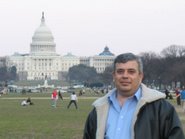The Compulsory Education Act in 1870 in the Victorian England led to the emergence of a new generation of newly educated middle class people. These people believed in modern civilization and wanted to be part of the growing empire. They had their own ambitions of a better life among a never changing conservative society. At that time, reading and writing was a privilege of the elite like Tennyson, Arnold, Browning …etc., that is not supposed to be practiced by the so called “Philistines”, referring to the new rising middle class generation. Therefore, Arnold considers them the enemies of culture and the reason behind anarchy.
Arnold, assumes himself very well cultured, and accordingly; “perfect” ,as he sees the function of culture, not only in terms of gaining knowledge, but also in doing good “ it is not merely the scientific passion for pure knowledge, but also the moral and social passion for doing good”827. But he is not doing any good to himself nor to anyone else by reflecting such discriminative thoughts against his people and using offensive terminology that doesn’t show the reality of things.
I was really astonished when I checked the meaning of the word “Philistines” in the American Heritage Dictionary and it showed like this:
“ a. A smug, ignorant, especially middle-class person who is regarded as being indifferent or antagonistic to artistic and cultural values. b. The one who lacks knowledge in a specific area.” If Arnold uses the word in this sense, it means that he is promoting hatred and discrimination, rather than making religion “to prevail” or “ perfecting himself”, by the name of culture. I was really offended when I read this article and I do believe that good intention and objectives should be approached and achieved by good means. And I see that Arnold is not doing so.
Arnold, assumes himself very well cultured, and accordingly; “perfect” ,as he sees the function of culture, not only in terms of gaining knowledge, but also in doing good “ it is not merely the scientific passion for pure knowledge, but also the moral and social passion for doing good”827. But he is not doing any good to himself nor to anyone else by reflecting such discriminative thoughts against his people and using offensive terminology that doesn’t show the reality of things.
I was really astonished when I checked the meaning of the word “Philistines” in the American Heritage Dictionary and it showed like this:
“ a. A smug, ignorant, especially middle-class person who is regarded as being indifferent or antagonistic to artistic and cultural values. b. The one who lacks knowledge in a specific area.” If Arnold uses the word in this sense, it means that he is promoting hatred and discrimination, rather than making religion “to prevail” or “ perfecting himself”, by the name of culture. I was really offended when I read this article and I do believe that good intention and objectives should be approached and achieved by good means. And I see that Arnold is not doing so.
